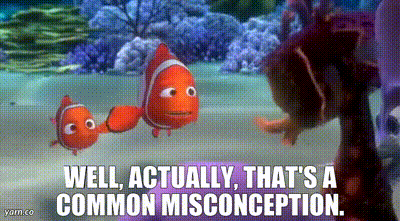Issue 001 - Meet Abimbola Arowolo
The urgency and impact of the insights we were generating made me realize the profound responsibility data professionals have in shaping decisions that affect lives.
Abimbola Arowolo, a dynamic and insightful Data Analyst at Bridge and Link Associates, has transformed her passion for data into a powerful tool for driving impactful change. With a career built on a deep fascination for uncovering hidden patterns, Abimbola has evolved into a strategic storyteller who uses data not just to inform decisions, but to inspire innovation and solve real-world challenges.
As you read through Abimbola's story, you'll discover how pivotal moments in her career shaped her philosophy, how she balances the technical and creative aspects of data work, and how she fosters a culture of data-driven decision-making. Dive into this compelling interview to learn how Abimbola's work is making a real-world impact and why mentorship and interdisciplinary knowledge play a crucial role in her continued success.
Q1: What inspired you to pursue a career in data, and how has your motivation evolved?
A: I was inspired to pursue a career in data because of my fascination with how it can reveal insights and drive meaningful decisions. Initially, I was drawn to the technical aspects of data analysis and the thrill of uncovering patterns. Over time, my focus has shifted to the broader impact of data on real-world issues, such as empowering businesses and improving decision-making processes. Now, I am passionate about using data to tell compelling stories and drive social change.
Q2: Can you share a pivotal moment in your career that significantly shaped your approach to data?
A: A pivotal moment in my career was when I worked on a project analyzing COVID-19 data. The urgency and impact of the insights we generated made me realize the profound responsibility data professionals have in shaping decisions that affect lives. It wasn’t just about technical accuracy; it was about ensuring clarity, transparency, and the ethical use of data, especially when the stakes were so high. This experience significantly shaped my approach, emphasizing the need to focus not only on the numbers but also on how data can drive meaningful, responsible action. It also reinforced the importance of clear communication, particularly when insights have real-world implications.
Q3: How do you balance the technical aspects of your role with the need for creative problem-solving?
A: I balance the technical aspects of my role with creative problem-solving by integrating analytical skills with innovative thinking. While I rely on data analysis tools and techniques to derive insights, I prioritize understanding the context and objectives behind the data. This involves engaging with stakeholders to identify challenges and brainstorm solutions. I encourage an exploratory mindset, experimenting with different approaches to data visualization and interpretation while staying open to new ideas.
Q4: What ethical considerations do you grapple with in your work, and how do they influence your decisions?
A: In my work, I often navigate ethical challenges around data privacy, bias, and transparency. Ensuring that data is collected and used responsibly, without violating user privacy, is a top priority, especially when handling sensitive information. I actively work to identify and mitigate biases in the data that could lead to unfair outcomes, ensuring my models are as objective and inclusive as possible. Transparency in communicating how data is used—and its limitations—is crucial for stakeholders to make informed decisions. These principles shape my approach to data handling, analysis, and reporting, ensuring my work remains both ethical and impactful.
Q5: Can you discuss a project where data insights led to unexpected outcomes or revelations?
A: In my bank statement analysis project, aimed at gaining insights into my income and expenses, the results were unexpectedly revealing. While I anticipated typical spending patterns, I discovered that small, recurring expenses—such as subscriptions and convenience fees—were significantly contributing to my overall expenditure.
These often-overlooked charges added up to a substantial amount over time. Another surprising insight was the irregularity in my income, with certain months showing unexpected spikes due to freelance payments outside my regular salary.
This analysis exposed hidden spending habits and emphasized the need to track both income and expenses more diligently. It ultimately prompted me to optimize my budgeting and rethink how I manage personal finances.
Q6: How do you foster a culture of data-driven decision-making within your team or organization?
A: To foster a culture of data-driven decision-making within my team or organization, I focus on making data accessible, encouraging collaboration, and promoting transparency. I ensure that relevant data is easy to understand and accessible to all team members, regardless of their technical expertise.
I also create opportunities for cross-functional collaboration, enabling different departments to share insights and view data as a key asset for problem-solving. Additionally, I lead by example, incorporating data into my own decision-making to demonstrate how it drives better outcomes. By regularly communicating the impact of data-driven insights, I help reinforce its value and encourage a mindset where data becomes the foundation for strategic decisions.
Q7: What role does mentorship play in your career, and how have mentors influenced your journey?
A: Mentorship has been a crucial part of my career, offering guidance, support, and valuable insights from someone with more experience. My mentor has helped me navigate challenges, hone my skills, and broaden my perspective in the data field. He has encouraged me to embrace new opportunities and pushed me to think critically about my work. This relationship has not only boosted my confidence but also inspired me to pay it forward by mentoring others and fostering a culture of learning and growth.
Q8: Can you reflect on a setback in your data career and what you learned from it?
A: One significant setback in my data career occurred early on when I misinterpreted data due to incomplete cleaning and preparation. In my rush to analyze, I overlooked critical outliers and inconsistencies in the dataset, leading to flawed insights. Fortunately, these errors were caught before any major decisions were made. This humbling experience taught me the importance of thorough data cleaning and validation before diving into analysis. Since then, I’ve become much more meticulous, ensuring data integrity and accuracy at every step. It reinforced that, regardless of how advanced the analysis, clean and accurate data is always the foundation.
Q9: What are some key skills that are often overlooked in your field of data?
A:
1. Communication Skills: The ability to clearly convey complex insights to non-technical stakeholders.
2. Critical Thinking: Questioning assumptions and considering alternative explanations to draw accurate conclusions.
3. Business Acumen: Understanding how data impacts strategic decisions and aligns with organizational goals.
4. Data Ethics: Awareness of ethical considerations, including data privacy and bias.
5. Collaboration: Working effectively with cross-functional teams to integrate diverse perspectives.
6. Adaptability: Being open to learning new tools and methodologies in a constantly evolving landscape.
These skills significantly enhance the effectiveness and value of data professionals.
Q9: What are some common misconceptions about your role or field?
A: Some common misconceptions about my role in data analysis include the belief that data analysts simply crunch numbers and produce reports without adding much value or creativity. In reality, our work involves deep critical thinking, problem-solving, and storytelling to derive actionable insights from data.
Another misconception is that data analysis is solely about technical skills. While proficiency with tools and coding is essential, understanding the business context and effectively communicating findings are just as important. Additionally, many people assume data analysis is a one-time task, when in fact, it’s an ongoing process requiring continuous iteration and adaptation to changing data and business needs.
Q10: How do you integrate interdisciplinary knowledge (e.g., psychology, economics) into your data work?
A: I integrate interdisciplinary knowledge, such as psychology and economics, into my data work by applying behavioral insights and economic principles to enhance my analysis. Psychology helps me understand user behavior and decision-making patterns, informing data models and shaping how insights are presented. Economics provides frameworks like supply and demand and price elasticity, guiding forecasting, and scenario analysis. This combination enables me to build more accurate, holistic models that reflect real-world dynamics, making the data actionable and meaningful for decision-makers.
Q11: What resources (books, courses, tools) do you recommend for people to level up their skills?
A:
Books: Storytelling with Data by Cole Nussbaumer Knaflic, Data Science for Business by Foster Provost and Tom Fawcett.
Courses: Google Data Analytics Professional Certification on Coursera, and edX courses on data analytics and machine learning.
Tools: Kaggle for datasets and competitions, which provide hands-on practice in real-world scenarios.
Key Takeaways:
Motivation in Data: Starting with a technical fascination, evolving into a desire to drive social impact through data.
Ethical Responsibility: Data professionals must ensure transparency, privacy, and ethical decision-making.
Creative Problem-Solving: Combining technical expertise with innovative thinking and collaboration.
Mentorship: Essential for personal growth and fostering a supportive data community.
Interdisciplinary Approach: Integrating psychology and economics leads to more actionable insights.
If you’d like to learn more or connect with Abimbola for further discussions, you can reach her on LinkedIn at Abimbola Arowolo
If you have a question you’d like us to address or a specific individual you’d like us to invite, please share it here or provide the individual’s LinkedIn profile.
Best,
Ayoade Adegbite
Creator of Behind the Data












I enjoyed reading this wonderful interview. One part that stood out for me is when Abimbola shared the importance of maintaining data Integrity and data accuracy through meticulous data cleaning process before drawing insight from the data for decision-making.
Great interview. Looking forward to reading more.